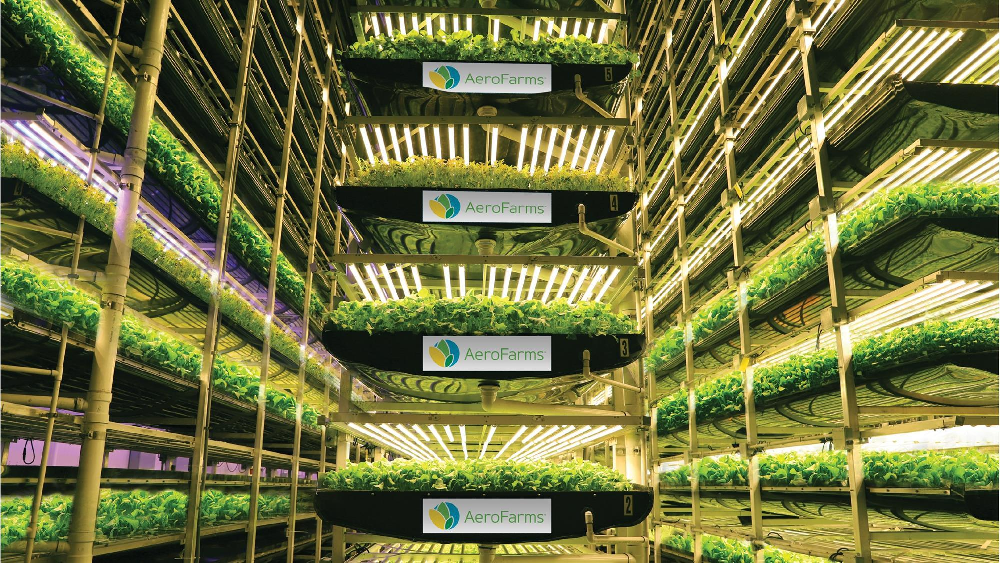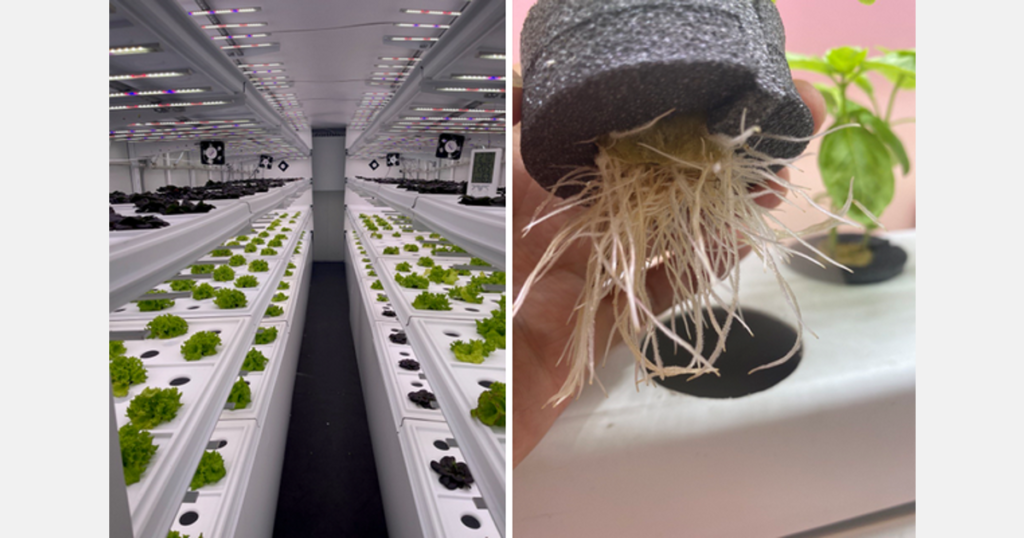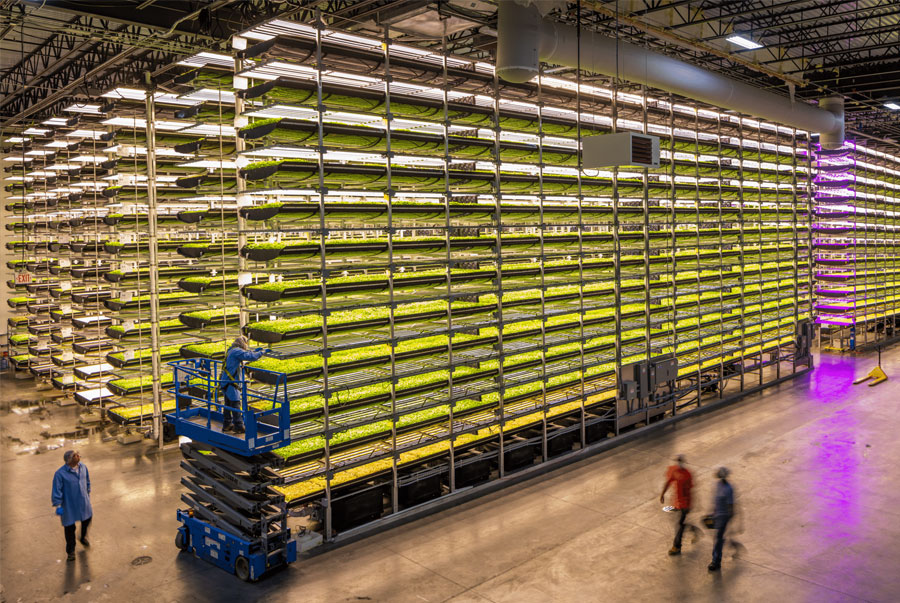Hi readers! The tech-based vision of food security is being practically translated into reality more quickly that one can anticipate. The initiative is taken by no one else but UAE: The United Arab Emirates: consisting of Abu Dhabi (the capital), Ajman, Dubai, Fujairah, Ras Al Khaimah, Sharjah and Umm Al Quwain
UAE is located in an arid zone, where desert environment accounts for more than three quarters of the country’s total area. Its environment is characterized by low rainfall, high temperatures, poor soil and lack of natural waterways, all of which have a clear impact on the country’s agricultural sector. Nevertheless, despite desert climate, scarcity of arable land and water resources, agriculture is being practiced in UAE mainly in Ras Al Khaimah, Fujairah, Al Ain and in some oasis. The sector developed rapidly since 1971, despite problems due to soil salinity, environmental conditions, high production costs, agricultural pests and post-harvest losses.
Despite these challenges, UAE has made outstanding efforts to build an agricultural sector that is better able to contribute to food diversity and the national economy by adopting policies that limit the impact of these factors and adopt sustainable and climate smart agriculture methods that focus on the optimal utilization of the cultivated land and the quality of local produce to enhance its competitiveness. these policies are based on innovative technologies and solutions, such as hydroponics, aquaponics and organic agriculture, in addition to strengthening agricultural pest control programs, reducing loss and waste throughout the food chain and expanding interest in scientific studies and research in the agricultural field.
The latest statistics showed that total local agricultural production hit 707,774 tons in 2020. Crop production reached 421,524 tons which is about 59.6% of the total agricultural production, with an increase of 33% compared to that of 2017:
Agriculture in UAE is technology dependent and mainly grows vegetables and fruits while crops includes dates, tomatoes, cabbage, eggplant, cauliflower, squash, bougainvillea, tropical hibiscus, eggplant, mangoes, citrus fruits, etc. Dates are the primary domestic crop in the UAE with fresh vegetables representing the bulk of other domestic crop production. Chickens, goats, and sheep are the UAE’s most common domestic livestock animals, representing 88.7% of domestic livestock production, with camels and cattle combined representing 11.3%.
The late Sheikh Zayed bin Sultan Al Nahyan played a significant role in the evolution and development of agriculture sector in the country especially preserving water resources, and installation of modern irrigation systems to replace flood irrigation methods which wastes large amounts of water.
The peak of this technology is being witnessed in vertical farms (AeroFarms) opens in Abu Dhabi
AeroFarms ” Vertical Farming“ is an award-winning vertical farming company solving agriculture’s biggest challenges for a better world by using a patented aeroponic growing system which is different from hydroponics in a way that In hydroponics, plants may be suspended in water full-time or fed by an intermittent flow of water. Aeroponic plants are never placed into water, instead being given nutrients from a mist sprayed onto their roots. This key difference is what gives each method their unique name.

Plants growing in vertical AeroFarms.
Ultrasonic technology is used to create high-frequency sound waves that shake water, until it disperses into lots of tiny droplets, like a mist that increases the viability of using aeroponics in much larger, commercial growing spaces, where its impact is maximized because Aeroponics nutrients are misted through oxygen, and there’s plenty of oxygen in the growing chamber for roots to absorb. That’s one reason aeroponics plants grow faster and absorb more nutrients than regular hydroponics plants.

the hanging root in aeroponic system receiving nutrient through mist
Another advantage is ease of cleaning and renewal. In regular hydroponics systems, growers have to remove and replace rockwool and other root zone media. In aeroponics systems, growers remove plants and their roots, wash the irrigation channels, reservoirs and root chambers with water and disinfectant, and then the system is ready for new plants.
The impression that aeroponics systems are easy to set up and run is misleading. The increasing popularity of aeroponics has led to a variety of plug and play systems that involve about the same amount of set up as when a grower builds a pump-timer irrigated regular hydroponics system.
Plug & Play, sometimes abbreviated to PnP, is a technology that allows peripheral devices to be connected to a computer and used almost immediately. All the user has to do is plug the device into a free computer port, with no need for manual configuration and no need to install a driver.
Most aeroponics systems include standard features comprising lower chamber/reservoir, upper chamber, pumps, sprayers and neoprene collars.
It is very important to know that chamber in which roots reside must be opaque. Roots do not like light. They evolved to grow underground.
AeroFarms AgX will develop the world’s biggest R&D farms in Abu Dhabi to develop crops that are more resilient to extreme conditions.
In 2021, AeroFarms said it was scrapping plans to go public via a special purpose acquisition company, saying it was not in the interest of shareholders to do so.
But, on Feb 15th , 2023, Kelsey Warner of “Nbusiness” reported that,
“eighteen months after breaking ground in Abu Dhabi, US vertical farming company AeroFarms has opened its 6,000 square meter research and development center, the largest of its kind in the world, with the aim of advancing sustainable agriculture in arid climates”.
UAE Minister of Climate Change and Environment called the opening a great achievement for the region, noting that 80 per cent of the nation’s food is imported and less than five per cent of land is suitable for farming.
Advancing indoor vertical farming, which relies on precise environmental control systems, less water and none of the pesticides used in traditional farming, could transform the region’s potential as an agricultural producer.
AeroFarms AgX company’s wholly owned subsidiary in the UAE, is part of a group of four AgTech ventures to share in a $150 million investment from Abu Dhabi Investment Office (Adio), announced in April 2020, to bring cutting-edge research to the capital to improve food security. AeroFarms partnership with Adio is indicative of the commitment to commercialize new products for the region and the world, said co-founder and chief executive of AeroFarms.
“There are few parts of the world where there’s the belief (and vision plus foresight too) that “we can do anything.”
While the CEO told “The National” at the of project’s announcement that,
“In the UAE, you have boldness of let’s do it bigger and better and that was very attractive to us.”
Abu Dhabi has invested tens of millions of dollars into AgTech start-ups with a focus on technology-based solutions to boost food production, including automation, robotics and novel approaches to greenhouse and vertical farming.
The UAE announced a national food security strategy in 2018 and 5 years down the line, she is doubling down on its sustainability efforts as it prepares to host Cop28 later this year.
Have we prepared our food security strategy? Not yet and will never ever because we don’t have vision, will and foresight: the most mentally bankrupt people we are on this planet earth. Yet we claim Pakistan has lot of talent so we can also do this and all other things. But when it comes to brass tacks, we are zero which means complete failure. CPEC is the textbook example of that. The project was started in 2013 but, 10 years down the line we are still at point zero. We need just $ 150 million investment but who want to make that investment?
Is it being worth merrymaking in Europe instead of investing in Pakistan?
The new R&D center will employ over 60 engineers, horticulturists, and scientists to staff the laboratories conducting research into genetically modified crops and automated growing practices.
The company also said it plans to develop machine learning and robotics at the site with the aim of increasing food yields and reducing the resources needed to grow produce.
The plan is to partner with local companies and universities on research projects to tackle problems of agriculture within desert and arid climates.
AeroFarms AgX announced its first local partnership agreement with Abu Dhabi AgTech firm Silal: an ADQ-owned company. The partnership will focus on R&D to commercialize crops like tomatoes and peppers.
Chief executive of Silal said its collaboration with AeroFarms marks a milestone towards developing more effective long-term agriculture practices in Abu Dhabi.
What do you think dear readers, we are an agriculture country and importing everything related with our food security. UAE: a net food importing country is securing her food security through latest technology, will and vision. What a comparison?
See you next week.
Take care,
Bye





